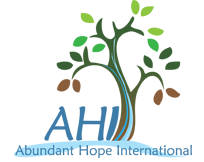“Of the 193,000 Holocaust Survivors living in Israel today, approximately 50,000 of them are in poverty… According to the report by the Foundation for the Benefit of Holocaust Victims in Israel… The average age of Holocaust survivors in Israel today is 85 [years], and approximately two-thirds are women. Each year an estimated 13,000 survivors pass away.
“Of the Holocaust survivors surveyed, 45 percent indicated they felt “alone,” and one out of every five had been forced to choose between food and other necessities during the past two years due to financial insecurity.
of every five had been forced to choose between food and other necessities during the past two years due to financial insecurity.
“Holocaust Survivors who made aliya after 1953 do not receive the same benefits as those Survivors who arrived earlier… Finance Minister Yair Lapid announced a NIS 1 billion 10-point national plan to assist survivors for the next five years. …it calls to raise the minimum allowances for all Holocaust survivors who receive monthly pensions, and would entitle survivors to a 100% discount on pharmaceutical drugs included in the health basket, compared to the 50% deductible they have today.
 “Furthermore, the national plan calls for the allocation of NIS 277m. to end 61 years of disparity and equalize the allowances of the approximately 18,500 Holocaust survivors who made aliya after 1953, with those of survivors who arrived in the country earlier.” – Jerusalem Post 1.1.17
“Furthermore, the national plan calls for the allocation of NIS 277m. to end 61 years of disparity and equalize the allowances of the approximately 18,500 Holocaust survivors who made aliya after 1953, with those of survivors who arrived in the country earlier.” – Jerusalem Post 1.1.17
Most of this information, published in the newspaper this first day of 2017, is not new to us. It is something we see every day on our visits.
Most Survivors have adequate food and a place to live. But even for them we notice those who struggle with the cost of their medicines, and additional needs such as eye and dental, which is a burden they cannot carry.
But even beyond the statistics and the basic needs, we are intimately aware of the deeper needs, often not admitted. The report says 45% say they feel alone, but from our observations we believe the number is actually higher. It is hard for many of them to admit they are lonely and in need the touch of someone’s hand or a hug. They feel guilty for surviving when their family died. They feel shame for being in poverty of any form. They have been beaten down by their identity as someone captured and imprisoned; now at the  end of their life they are fighting poverty and loneliness.
end of their life they are fighting poverty and loneliness.
Many people blame the government for not meeting all their needs. But it is not up to the Israeli bureaucracy to pay for every Survivor’s needs; and the practicality of it is enormous. The One who is ultimately responsible for their care is their own God. And the people group who should be the arms and legs fulfilling the physical needs are those who believe in HaShem.
AHI volunteers are the ones we call to write, paint, deliver letters, cards and birthday flowers, pray and sit with them to relieve the loneliness through visits and heart-warming conversation. They need to know someone really cares.
We consider it a privilege to partner with both the Israeli government and the God of Israel. He allows us to bless the Survivors of the Holocaust.
Will you join us? We need volunteers who can come to Israel, those who will pray for the needs, and those who can financially support all we do. Each one is an integral part of this  work.
work.
Time is running out and the clock is ticking. We will lose 13,000 more survivors in 2017. Please help us help them, before it is too late.

